WordCamp Europe 2025 wrapped up on Saturday at the Messe and Congress Center Basel in Switzerland, drawing more than 1,800 attendees — including 26% who were first-timers — from 84 countries and over 20,000 more tuning in online.
The mood across the conference’s three days was overwhelmingly positive, with many attendees taking to social media to praise the event’s energy, accessibility, and sense of connection.
As Stefana Zarić from Freemius posted, “As a first-timer at @WCEurope, I am SPEECHLESS. The energy at this conference is out of this world. I felt welcome, made friends, and shared inspiring chats with so many of you! I’ll post my full highlights soon. @freemius, THANK you for this experience. 💜”
Contributor Day Highlights Team Revivals, New Starts
The conference kicked off last Thursday with Contributor Day, bringing together 640 people across 27 teams.
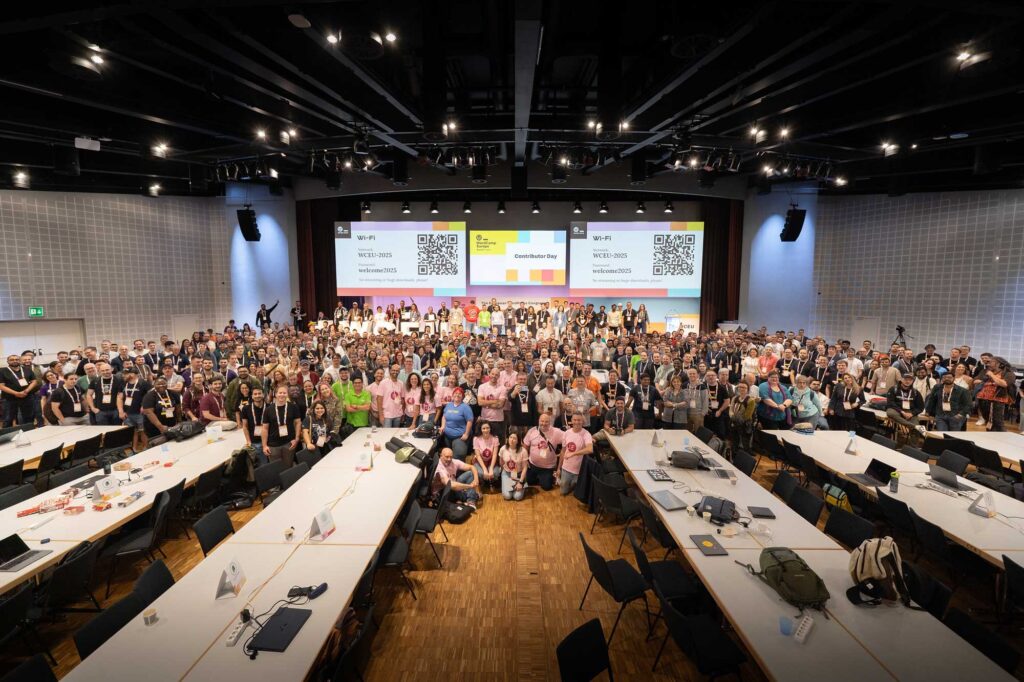
The Sustainability Team, which was shut down in January, was briefly rebooted for the event, thanks to WCEU organizers. Contributors at the table discussed reviving the team and collected signatures on three table signs — front and back — which were presented to WordPress Executive Director Mary Hubbard during a roundtable on the Five for the Future initiative.
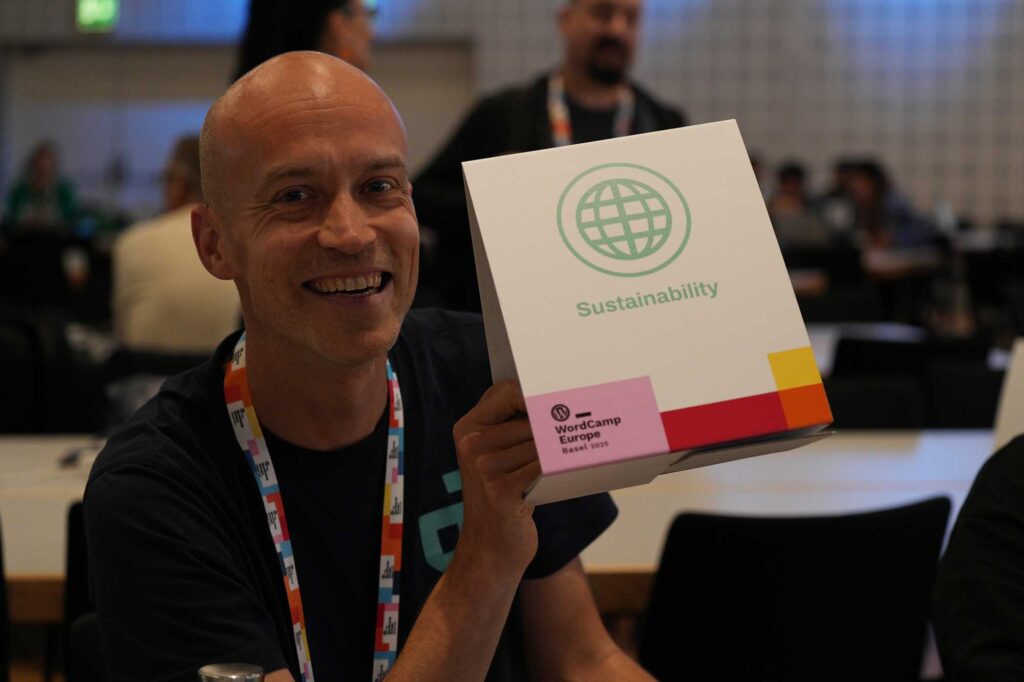
The WordPress Marketing Team also made a comeback. Thirty contributors, including 12 newcomers, reviewed 100 submissions for the WordPress Showcase. The team had been “temporarily archived” in April 2024 to make way for the WordPress Media Corps, which was shut down in May 2025.
The WordPress Photos Team moderated 41 submissions, of which 35 were accepted. The WordPress Community Team also approved a budget for a photography contest, with more details expected soon.
The newly launched WordPress AI Team had a table too — their handwritten sign a clue to just how new the team is, having only formed a week earlier.
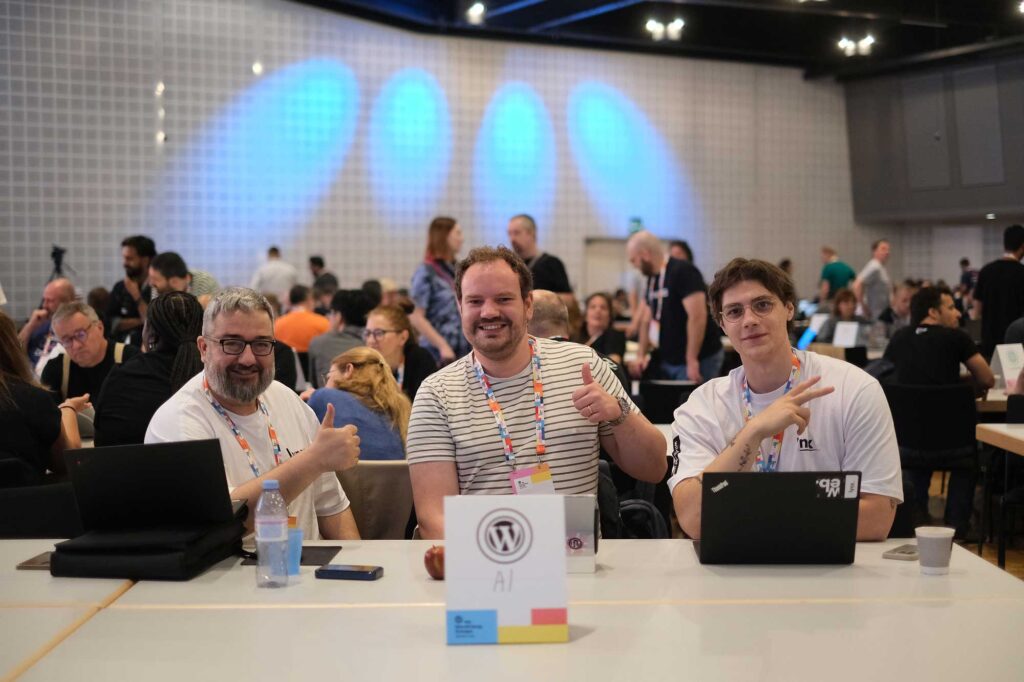
Talks Tackled AI, Accessibility, and the Future of WordPress
Day one opened with a keynote from Human Made CGO Noel Tock, WordPress Without Borders — The Fight for Digital Freedom, setting the tone for a packed schedule of talks that spanned the political to the practical. Sessions explored everything from sustainable site design and social entrepreneurship to block development and how a multinational bank uses WordPress.
Developers weren’t left out, with sessions on Composer best practices, the Interactivity API, WordPress Playground blueprints, and AI automation. There was also space for reflection, with talks on agency failures, product support, and leadership habits that help teams thrive. Community topics featured prominently, from building multilingual audiences to contributing as both a teenager and a veteran.
The day also brought some hands-on fun, with live website reviews and a Speed Build Challenge hosted by Jamie Marsland, Head of WordPress.org YouTube.
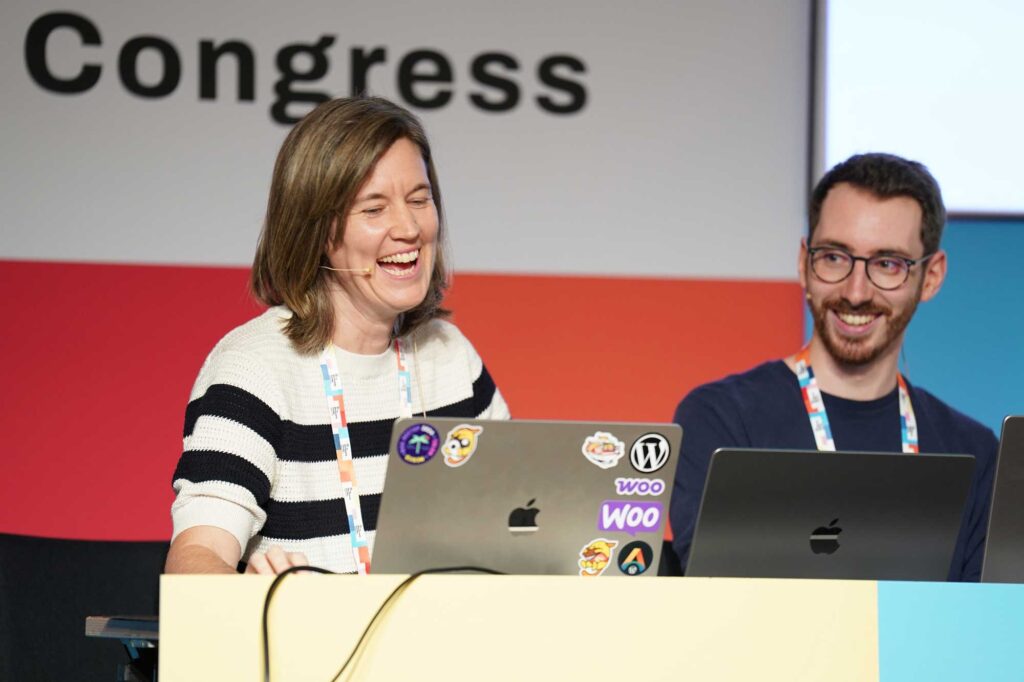
Day two opened with sessions on the future of WordPress, WordPress Playground, and multilingual development, setting the tone for a day focused on growth, inclusion, and the tools shaping what’s next. Accessibility also featured strongly, with talks on inclusive design, epilepsy, and the looming European Accessibility Act.
After lunch, the schedule shifted to the future of the web with talks on client-side AI agents and the EU’s Cyber Resilience Act, while Google’s John Mueller busted SEO myths.
All sessions from tracks one and two were live streamed and are now available on the WordPress.org YouTube channel.
Mullenweg Fields Questions on FAIR, AI, and Contribution
The conference concluded with a fireside chat featuring WordPress Executive Director Mary Hubbard interviewing co-founder Matt Mullenweg, followed by audience questions.
Hubbard opened with pre-submitted questions on EU regulation, Five for the Future reform, and the newly launched FAIR project. Mullenweg confirmed that WordPress 6.9 will ship this year — not next year, as previously announced — and said Automattic’s recent pause in contributions had prompted a strategic reset. He also acknowledged Five for the Future had focused too much on “input, not output,” and said future pledges should tie directly to impact.
Asked about FAIR, Mullenweg was cautious, raising concerns about fragmentation, security, and disruption to WordPress.org analytics. While he said it was too early to comment definitively, he said he welcomed the fact that “people are shipping code” rather than “just writing blog posts.”
At one point, Mullenweg drew laughter from the audience when he said WordPress.org had never been hacked. In fact, WordPress 2.1.1 was compromised in 2007 after a hacker gained access to one of the servers that powered the website, and again in 2016 when a critical remote code execution (RCE) vulnerability was discovered in api.wordpress.org, the server/s responsible for delivering WordPress auto-updates.
The conversation turned to the new WordPress Campus Connect program, with Hubbard announcing a formal partnership with the University of Pisa. Students will earn academic credit for WordPress contributions, with 5,000 students expected to take part in the pilot. Mullenweg called the initiative a “Cambrian explosion” opportunity for mentorship and community growth.
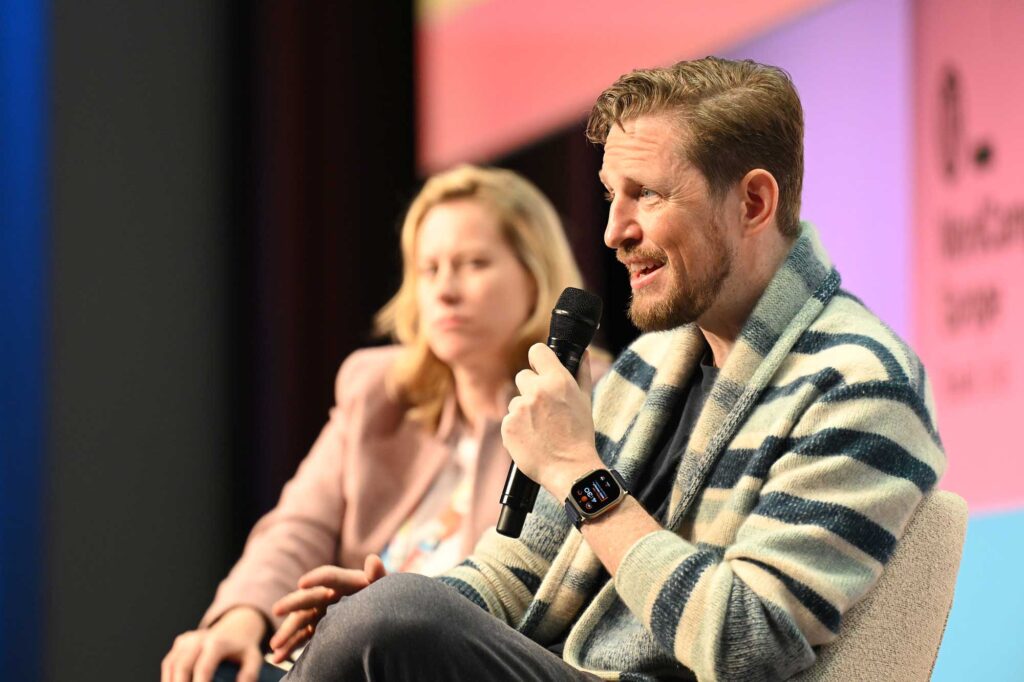
Audience members raised concerns about the disbanding of the Sustainability Team in January and the need to update CampTix, which powers WordCamps. Mullenweg reiterated his support for environmental sustainability but said the Sustainability Team had lacked measurable output and needed a reboot.
He described AI as ushering in a “golden era” for WordPress and said immediate priorities include plugin scanning, developer tooling, and new interface paradigms. Asked about WooCommerce, an Automattic-owned project, he confirmed continued investment in performance, checkout UX, and migration tools to help users move from platforms like Shopify.
Kraków Confirmed as Host City for WordCamp Europe 2026
As the conference closed, organizers announced that Kraków, Poland, will host next year’s flagship event.
A team of 90 organizers and 140 volunteers delivered WCEU 2025, led by WordCamp veterans Laura Sacco, Steve Mosby, and Uros Tasic.
Reflecting on this year’s success, the WCEU global leads shared their takeaways:
“I’m thrilled that WordCamp Europe has been a tremendous success — and we couldn’t be prouder of our incredible organising team whose hard work and dedication made it all possible.” — Steve Mosby
“I am happy that in the hardest times we managed to do a successful event with the community, by the community and for the community.” — Laura Sacco
“Happy to call WordCamp Europe 2025 in Basel a success, uniting 1,800+ WordPress fans representing 86 countries. Big thanks to our organisers, volunteers, and sponsors for their amazing work. The community’s passion made it unforgettable!” — Uros Tasic
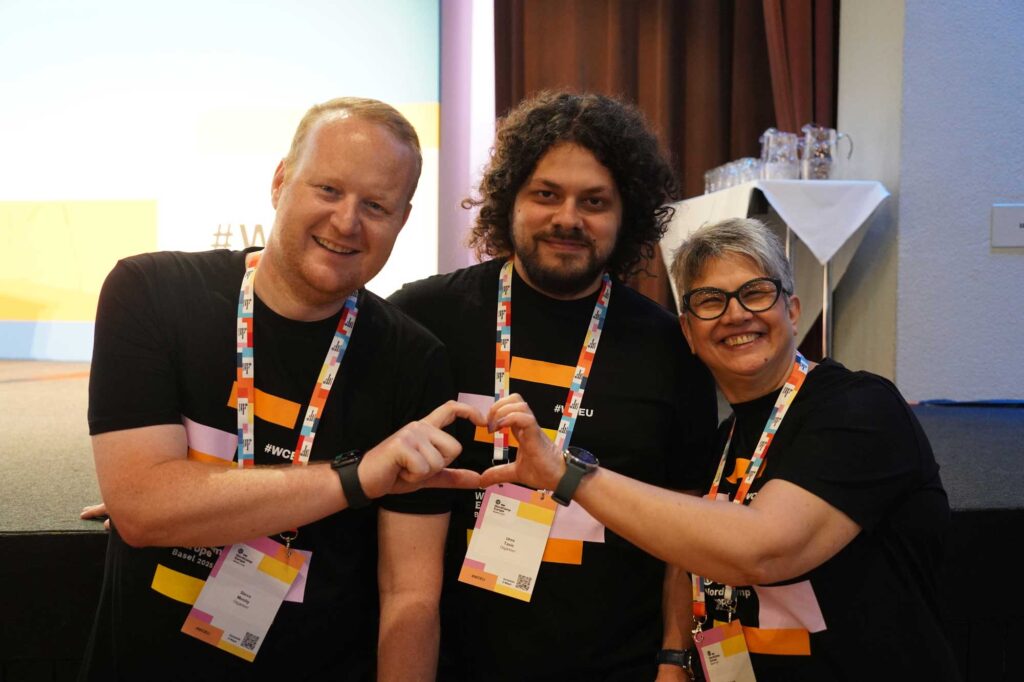
For more on how the event came together: Inside WordCamp Europe 2025: Lead Organizers on Making Basel Affordable, Inclusive, and Community-First
The Repository is a proud media partner of WordCamp Europe 2025.
Feature image credit: Nilo Velez.


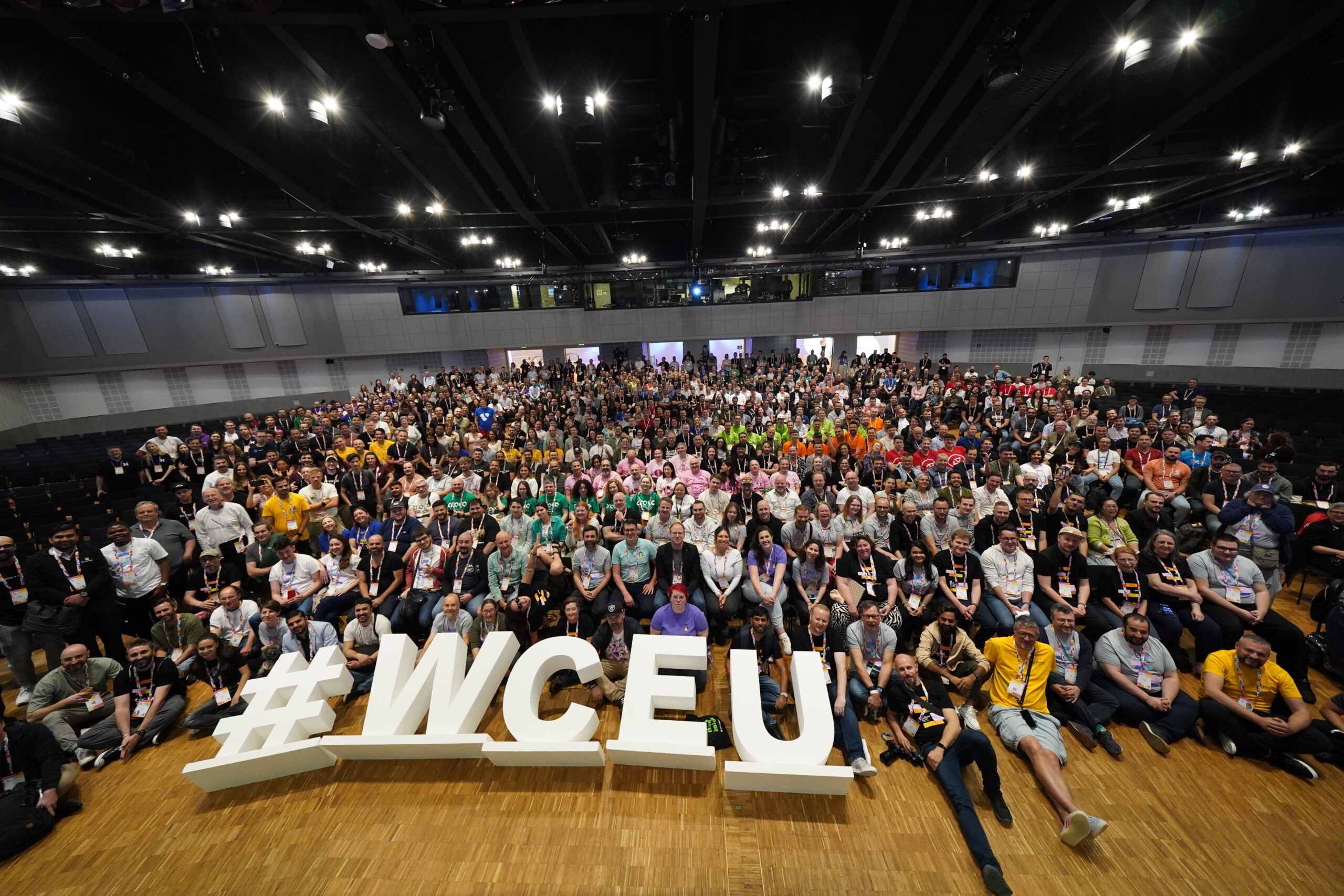
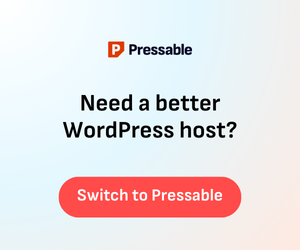


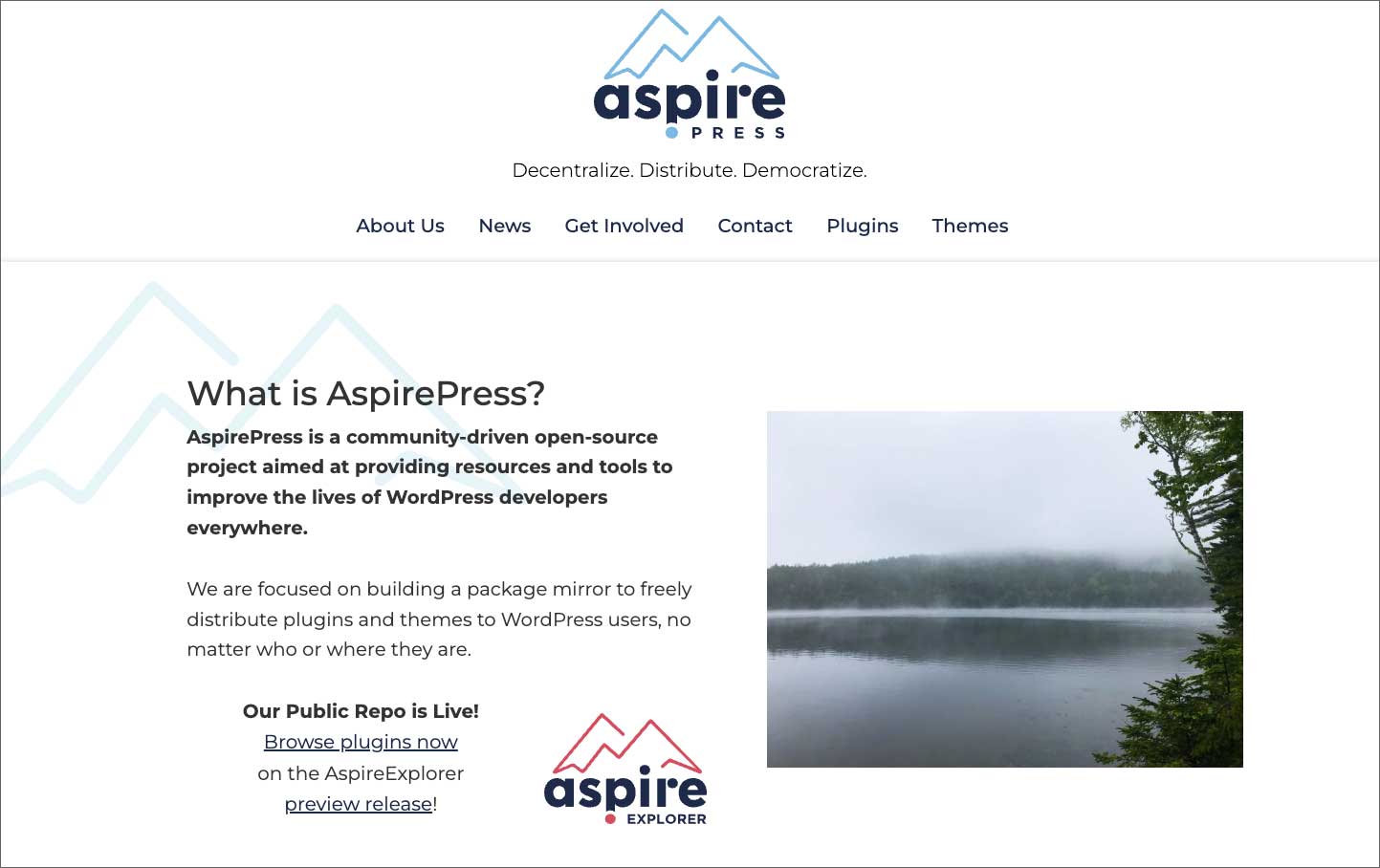
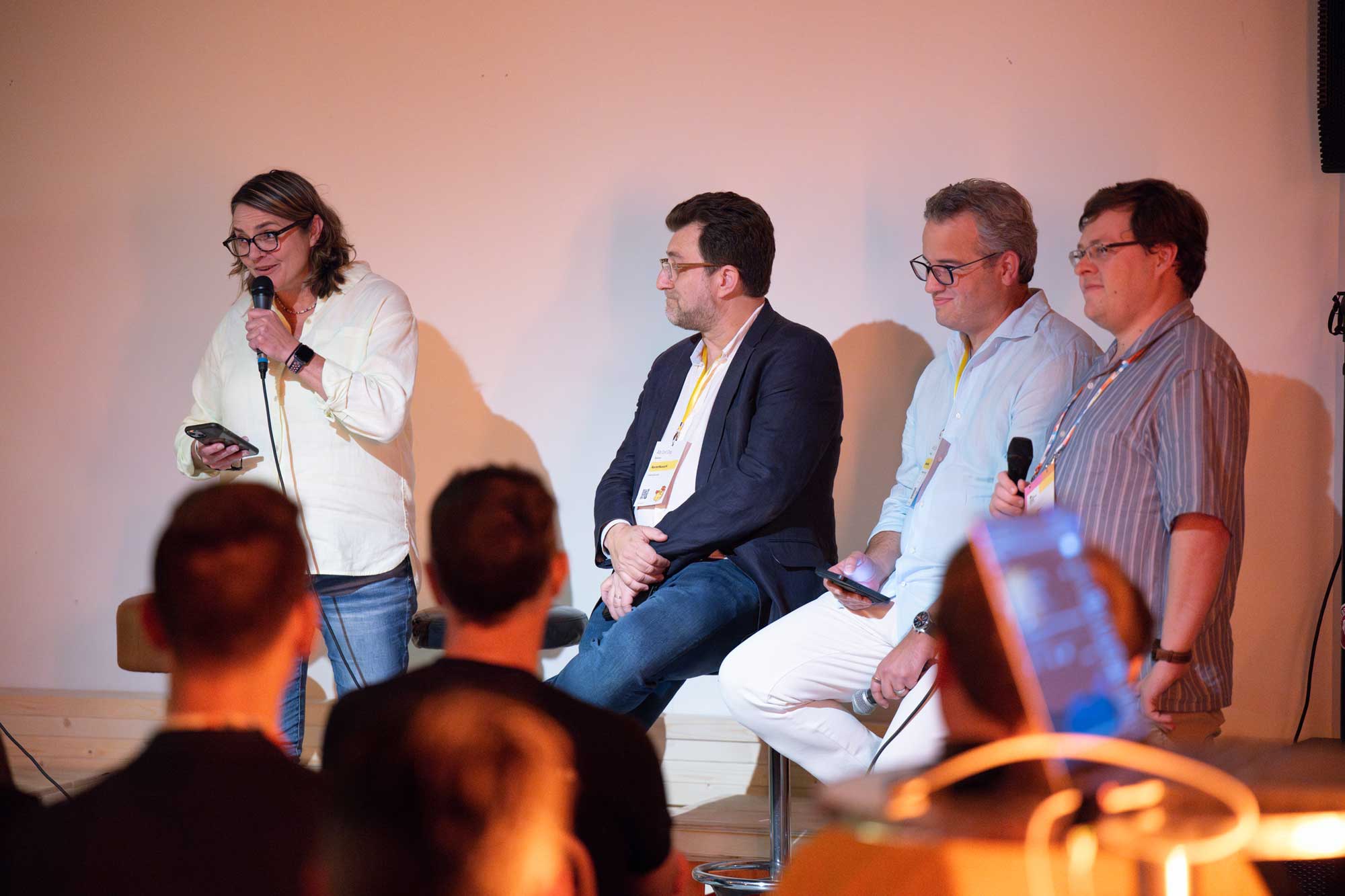
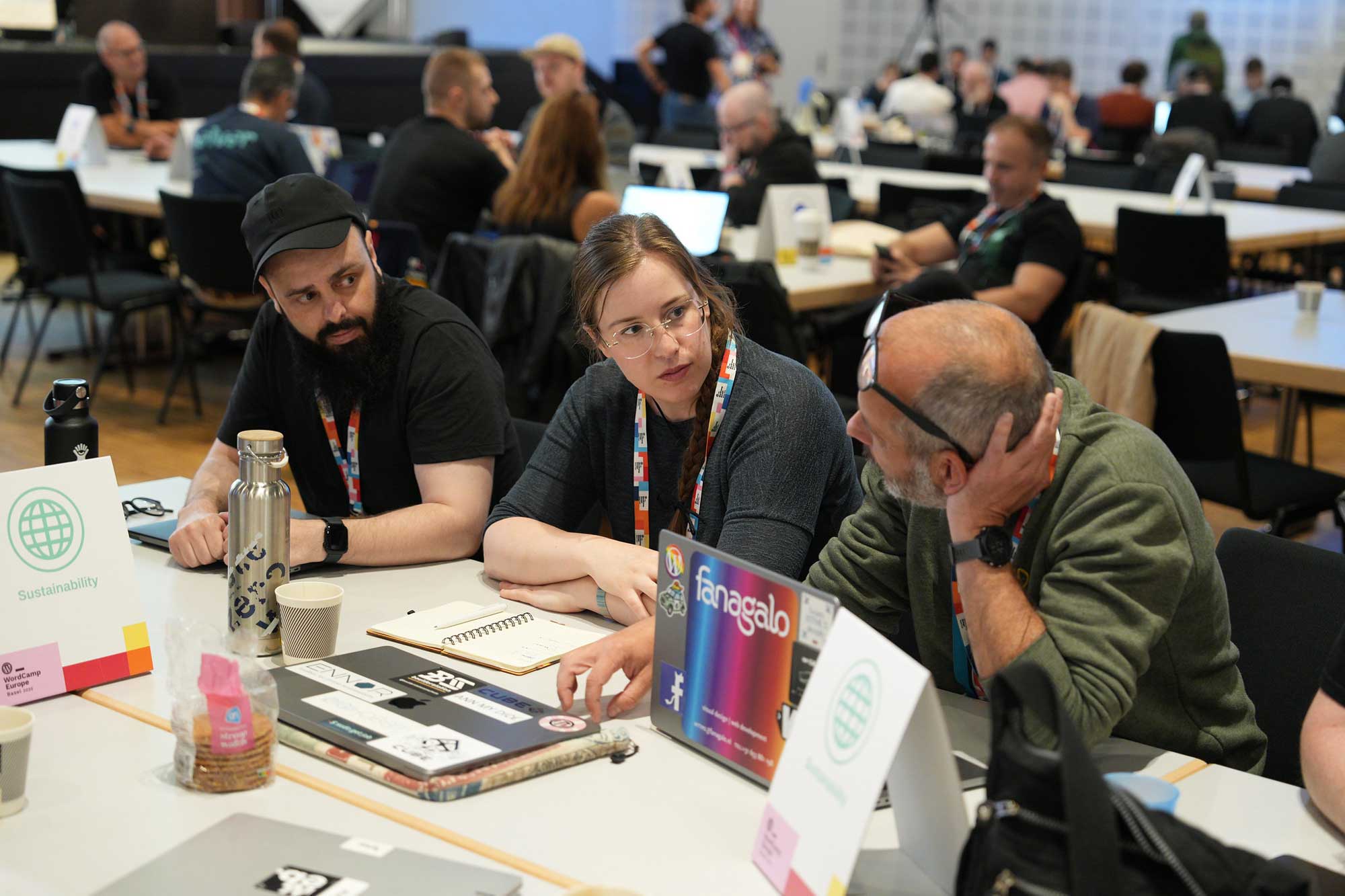
Leave a Reply